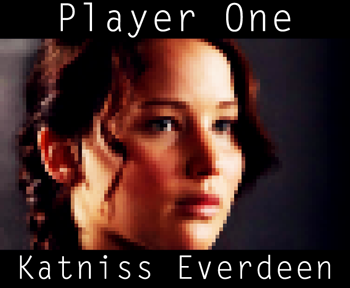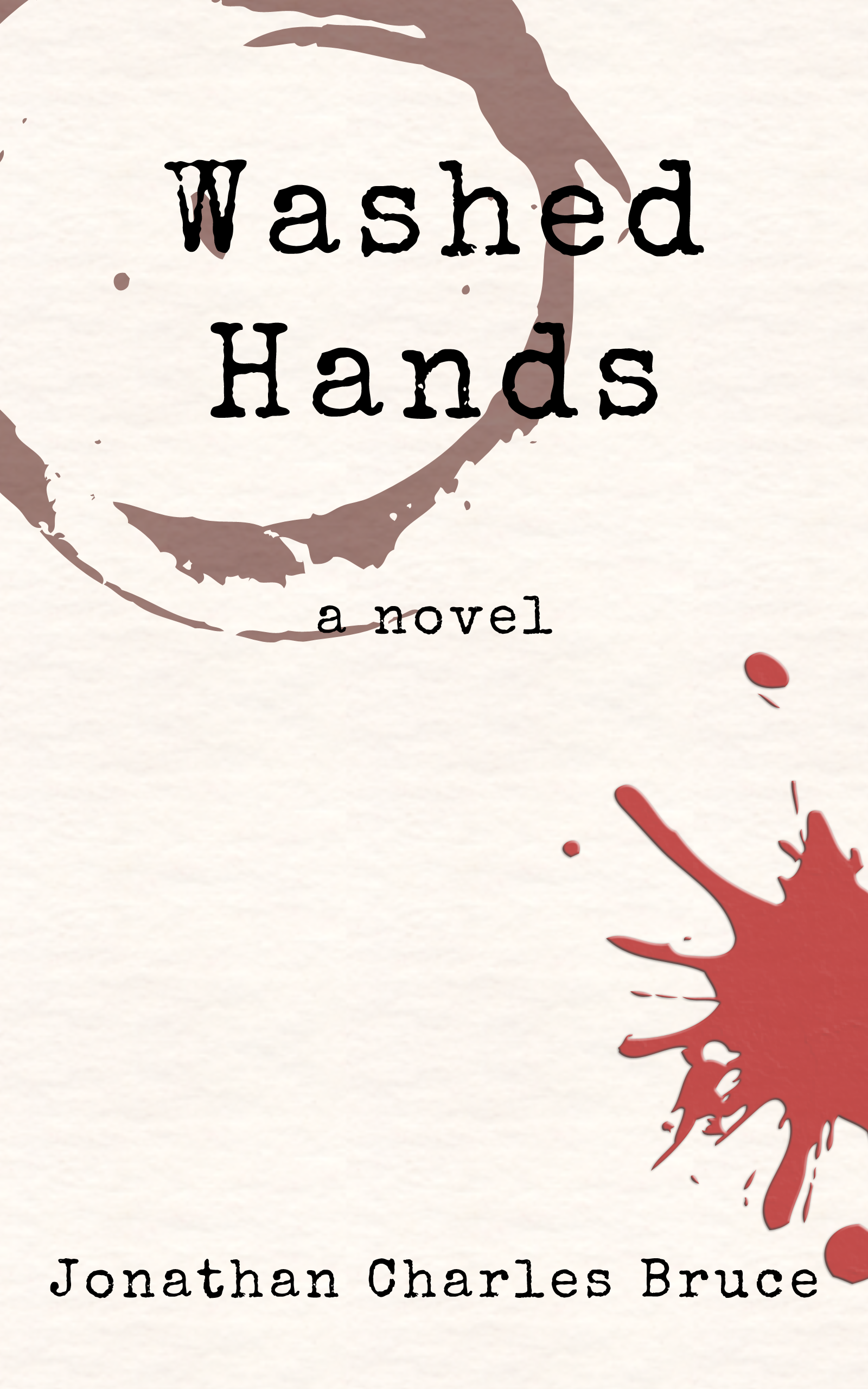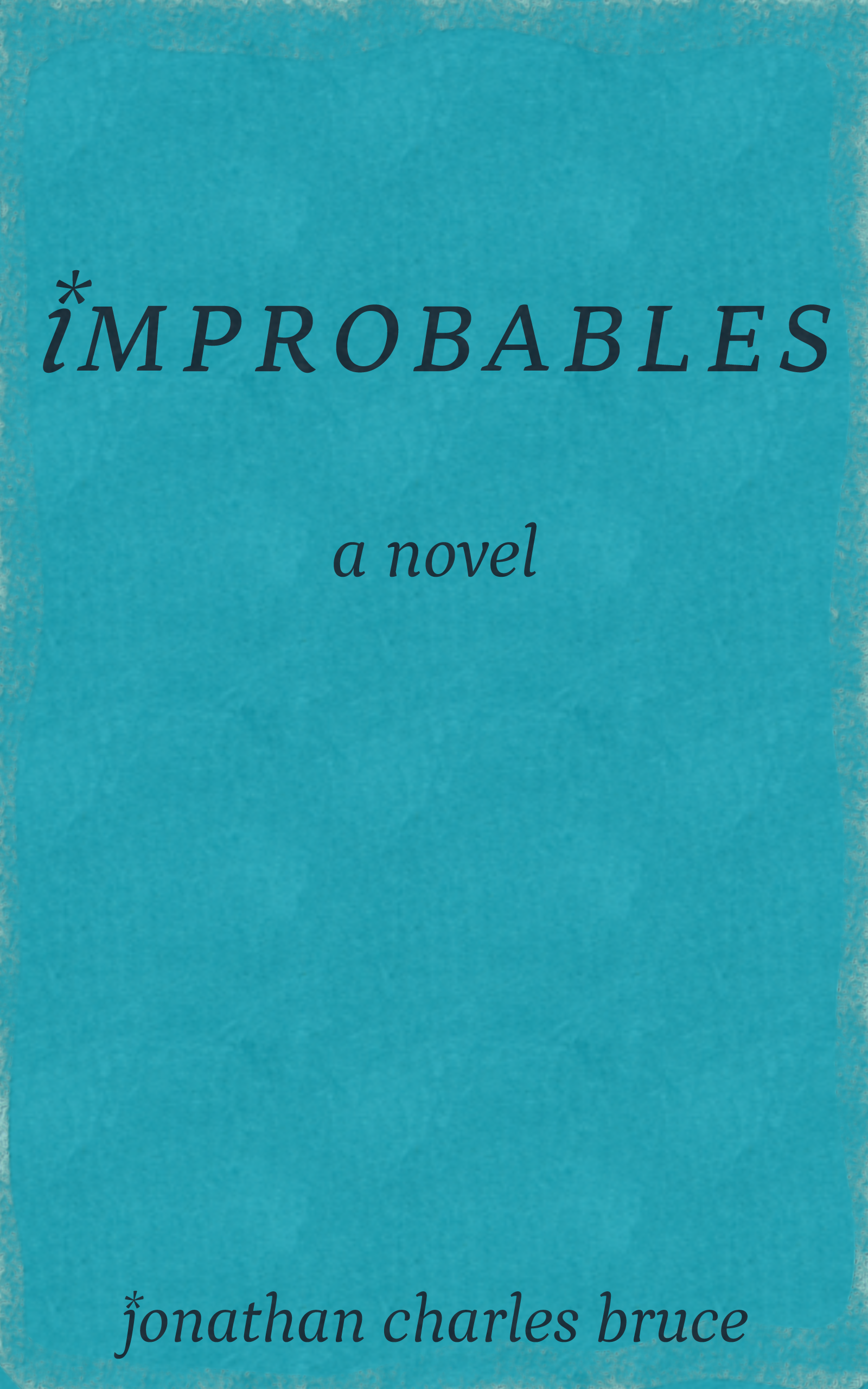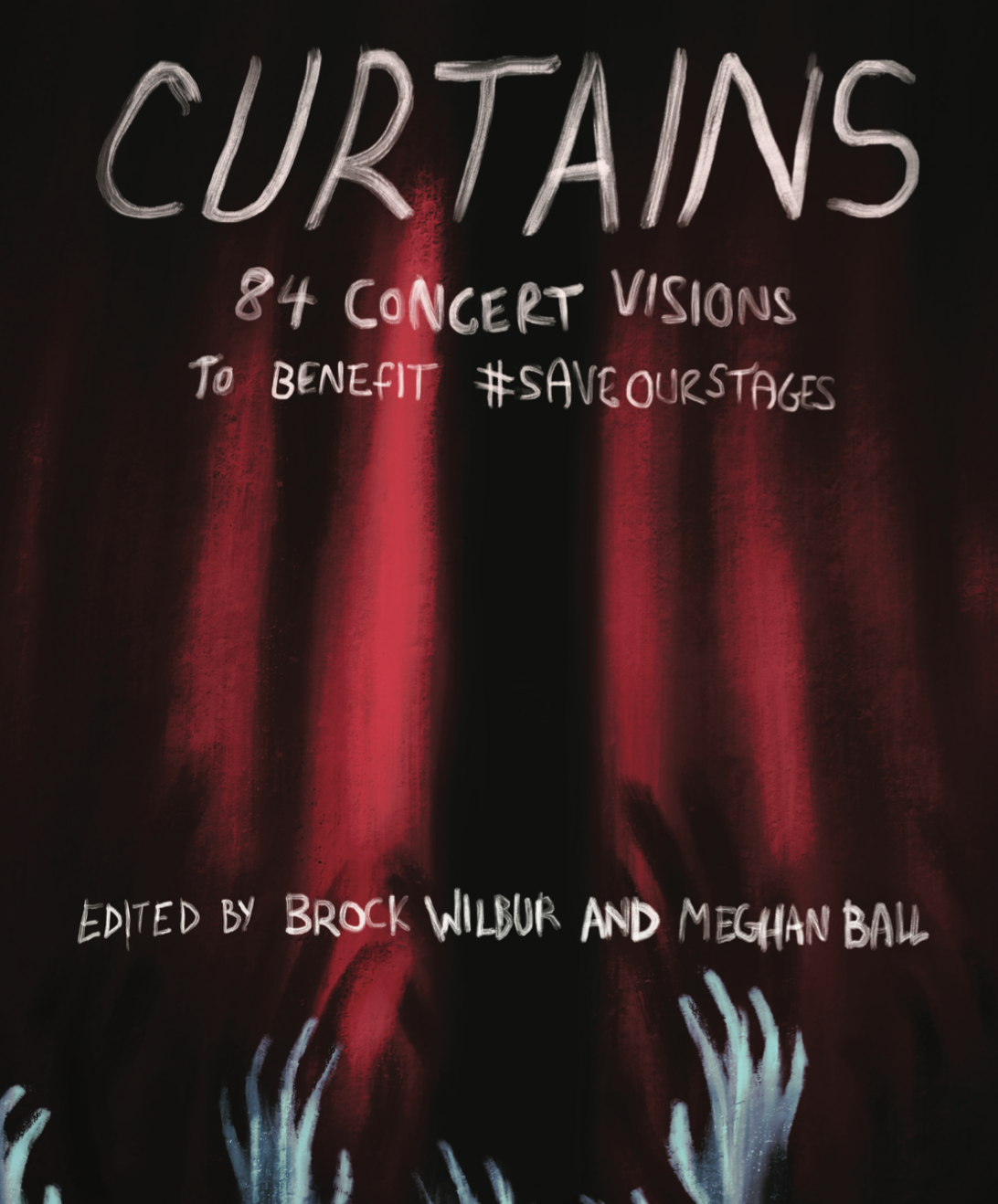Catching Katniss
Last week, in anticipation of seeing the film version of Catching Fire, I read the book upon which it was based. This outrageous act of brilliance, which I’m assured no one has thought of before, was accomplished in a day and allowed me to a) know when the boring parts of the movie were coming so I could use the restroom and b) make an educated judgment on which one was better.
It was the movie, by the way.
Don’t get me wrong, both versions were pretty entertaining, but the movie just had a better grasp of pacing and world building. Also, Peeta didn’t come off as nearly as huge of a creep in the film, with far less time spent listening to him make cringe-worthy comments to a girl he barely knows outside of “antisocial” and “serial killer.” As such, he seems less like a manipulative sociopath and more like a manipulative dork which, I guess, is an improvement.
But this blog post is less about an earnest review of the films themselves and more focused on the heroine, Katniss. As such, there will be spoilers of the first two canonical entries – if you value your non-exposure to such things, you are welcome to stick your head in a filing cabinet.
If you’re new to this discussion, here’s the rundown – a post-apocalyptic America is controlled by the Capitol, a megapolis of extremely effete and preposterously dressed individuals. Outside of the Capitol, you have twelve districts, which are used for one resource and are kept in varying states of starvation. This is due to the fact that 75-ish years ago, the districts thought the Capitol was stupid and evil, so they rebelled. After the Capitol crushed the rebellion, they decided to out-stupid and evil themselves, and created the titular Hunger Games, which I’m assuming they got the idea for after watching a burned copy of Battle Royale. The Hunger Games are a yearly event where a male and female teenager from every district are selected (or “reaped,” because if you’re going to be evil, go all out) to murder the shit out of each other until one is left standing. This is televised to all the districts as a “don’t fuck with us” message and is unironically presented as entertainment to the brain-dead citizens of the Capitol.
Oh, and most of the citizens of said Capitol have Roman names – just in case you missed the parallel.
We join the series on the eve of the 74th Hunger Games, where our heroine, Katniss Everdeen, volunteers to take her sister’s place. Also, as chance would have it, the male from her district is Peeta, who also happens to be “in love” with her. Through the combination of a good PR team, her ability to murder people (in self-defense or mercy killing, naturally), and Peeta playing the audience like a sap, Katniss manages to win and finagle a way out of murdering her fellow child-killer.
Catching Fire continues the story by following Katniss’s discovery of growing rumblings of rebellion in the other districts. You see, the way she saved her and Peeta’s life is not interpreted as an act of love by the downtrodden folks of the districts, but as a double-middle finger of defiance. Because of this, President Snow of the Capitol machinates the 75th Hunger Games to include only the previous victors of the games, meaning Katniss and Peeta have to go back in. We meet some more interesting characters, there are monkeys that get stabbed by tridents, acid fog, and Katniss remains blissfully unaware of a plan to rescue her and a bunch of other combatants that is (mostly) successful.
That should bring us up to speed. And despite the flippancy of my earlier rundown, I am actually fond of The Hunger Games. You see, I like Katniss. In the first book, she planned things out and was an agent of her own destiny. Sure, she was brought into a shitty situation by forces beyond her control, but she survived because she was smart and capable. Even her act of defiance was her decision – sick of being forced to kill for the amusement of others, she engineers a dual-suicide with Peeta. Fearing an uprising if the “star-crossed lovers” were to off themselves, they are both spared. It was Katniss’s plotting and intelligence that ultimately saved their lives – she is an agent of her own destiny.
Which is why the Katniss of Catching Fire is possibly a different person if not a different species from the Katniss of the original. Every plan she lays out in the book is almost invariably stifled before it gets off the ground. She is routinely beholden to others’ ideas and plots, to the point where she is the subject of the rescue mission, but she is never told that’s what is going on. The only thing she comes up with herself is to single-mindedly save Peeta because she feels she owes him. And technically speaking, she even fails at that.
Sure, there are plenty of reasons why the conspiracy to save her life is never relayed to her – the primary one being that she’s being watched by President Snow. But here’s the thing: she’s demonstrated herself to be a capable killer when necessary and she’s being dropped into an arena with a bunch of other people that she is under the impression will be trying to re-purpose her as a pincushion. What’s stopping her from straight-up murdering everyone else? Or dying in the process because she interprets everyone else as hostile? She nearly kills an ally at least twice because she is unaware that he’s actually interested in helping her. Apparently, she is instrumental to the rebellion, and yet they don’t let their pet murderer in on anything. This effectively makes her a particularly violent trophy to be won by the Capitol or the rebels.
And, with this, Katniss becomes a damsel in distress.
Make no mistake about it – no matter how the formula is altered, ultimately Katniss is trapped by the big bad Capitol and needs someone else to break her free. Sure, she ends up being the one to essentially break the games, but that’s because other people have already set everything up and she just kind of blunders into it. Up until the last minute, she’s risking life and limb to do stupid, inconsequential things which make her a huge target entirely because other people have more knowledge of the situation than she does. She’s actually a liability. Despite what internet memes would have you believe, Catching Fire Katniss is surprisingly close to Bella from Twilight’s level of usefulness to the world around her.
And when we compare her to Johanna, another previous winner of the Games brought back to replay her chart-topping murders, Katniss’s overall ineffectiveness become all too obvious. Johanna keeps two valuable people alive “for Katniss,” saves her life on one occasion and removes a tracking beacon from the heroine’s arm. Before the games – when the soon-to-be-victims have interviews with a talk show host consisting of 80% teeth – Johanna curses out the Capitol audience (in the movie, at least) of her own volition. Katniss’s time is spent lamenting, and concludes with her dress becoming a “mockingjay,” the symbolic representation of her defiance in the last games. That was set up by her stylist, Cinna – she had no foreknowledge that she was being used in that fashion. When it happens, she just kind of shrugs and goes with it. It’s all just so... passive.
And ultimately, that’s what’s particularly tragic about this great character. She goes from being a badass to being used by literally everyone. Sure, she’s pissy about it, but she almost always just takes it over and over. The rebellion wants her because of her symbolic value – the same reason the Capitol wants to control her. Peeta, without telling her of his plan or getting her permission, lies to the Capitol audience by saying she’s pregnant – reducing her to a basic physiological function. Outside of killing, Katniss is left essentially unable to do anything herself – she is a misanthrope who can’t make friends and is never able to formulate and execute plans. Considering where she started from, this is a weird step back.
The Katniss of The Hunger Games was clever and a survivor. Sure, that whole murdering thing is almost always conveniently done in a way to absolve guilt (she never has to kill someone she developed a relationship with, she mercy kills, self-defense, defense of others, etc.), but killing is never really easy on the psyche.
With Catching Fire, she’s just so fundamentally useless. No longer proactive and questing, she is entirely reactionary, responding to the world instead of actively working to change it. Outside of a few glimpses of character, like eulogizing the girl that died in her arms, there’s nothing particularly interesting about her anymore.
Part of the problem is that, in the book, Katniss is a bit on the dim side – characters drop clues they’re on her side in the most telegraphed ways possible, and her response (always) is to be angry and confused. I understand that she has problems with trust, but it comes off like she’s just kind of dumb, which is a shame. The film alleviates this issue, but it’s still just a bandage on a severed artery.
Ultimately, the plot is about her in only the most direct sense – she is the macguffin, the plot device around which everything is set. Although it goes against her character, embracing that would have alleviated a lot of these problems by making her a more active agent of her own fate.
While I’m sure someone else has already crafted this type of litmus test before, I would like to posit that the strength of your character and narrative can be evaluated by simply asking the question, “Would this work better if we were telling it from another character’s perspective?” Catching Fire would be so much more dynamic and interesting if we were following someone like Johanna, a member of the conspiracy and someone who, you know, does things.
To be entirely honest, I think Katniss works better as a kind of video game heroine. Not in the vein of Tomb Raider’s Lara Croft (a clear psychotic who enjoys murdering animals when not stealing valuable artifacts), of course. And she’s not in the league of say, Bayonetta, who despite being nearly naked most of the time, is almost always in control of whatever situation she finds herself in (even though she is also an unwitting pawn of the villains). No, she’s more along the line of the white-bread grunts of Call of Duty or Battlefield – essentially nameless meat bags who follow orders and rarely ask questions (unless it’s “which non-white person do I kill now?”).
Because if you look at it that way, the interactive nature of video games actually benefits the rigid structure of Katniss’s newfound reactionary nature. As a player, we would be less likely to question Katniss’s relationship to the world around her, as we would be in control. Since she would be our avatar, her general lack of personality in Catching Fire would be nearly inconsequential. We would be given an objective, complete it, and be given our next target. Gameplay!

I have a bare bones design doc, if anyone is interested.
Now, there are people who will argue that I shouldn’t judge the second in a trilogy before seeing the finale. To them I say “get fucked.” Every story has the same general plot structure of three acts. And every part of a trilogy needs to be a complete entity. The original Star Wars got that down perfectly, and The Empire Strikes Back is the best of the series. Even if we never got Return of the Jedi, it would have been a self-contained story where the bad guys won. You may not have been happy, but you would have been satisfied. Just as a painter doesn’t make the first and last thirds of the painting more important than the middle, an author shouldn’t sacrifice the middle component for the sake of drawing things out.
So there ya go. One of the more interesting female protagonists in recent years devolved into a trophy. Where are we going to go now for interesting and dynamic female characters?
< PREVIOUS ENTRY • NEXT ENTRY >
Advice • Fiction • Gaming • General Musings • Reviews






